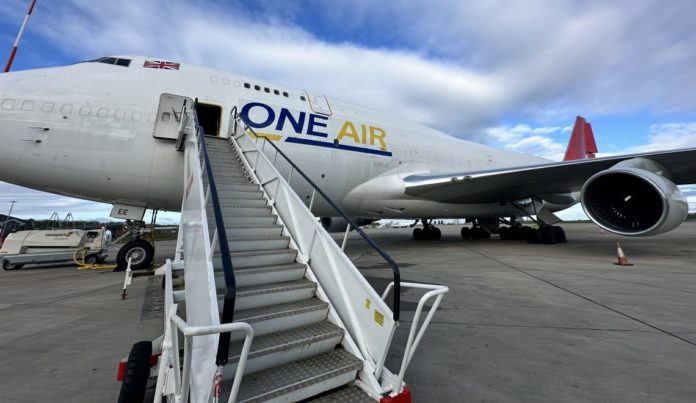East Midlands Airport could create tens of thousands of new jobs and billions in economic value from growth in its cargo operation, according to a study by air travel consultants York Aviation –
The report said that EMA would be well placed to support increased demand for air freight in the years ahead. Its advantages include its central location and closeness to major road and rail networks. Some 80% of all large warehouse sites are within 125 miles of EMA, compared to only 53% for Heathrow. More logistics developments close to the airport are expected to come in the coming years, with some investors attracted by the Freeport status and incentives attached to neighbouring sites.
EMA also specialises in the handling of express air freight carried in dedicated aircraft, not bellyhold passenger capacity which, the report says, is the fastest-growing type of air cargo. The three major cargo integrators – DHL, UPS and Fedex – have their main UK hubs at EMA and the airport handles a number of transatlantic flights for them. The airport’s single runway also has direct access to cargo integrator hubs.
EMA also has the capacity to accommodate an increase in cargo flights as the economy grows, while other key airports in the market face constraints.
The airport authority added that a recent example of this growth in action was the move by British cargo airline One Air from Heathrow to East Midlands Airport.
York Aviation said that air cargo growth at EMA will support between £687m and £1.8bn in additional economic activity and between 2,700 and 12,600 extra jobs by 2030.
The report also notes that Heathrow’s market share has fallen by 3% between 2012 and 2022, while EMA’s has grown by 7%.
EMA currently contributes around £443m to the regional economy, handling around 400,000 tonnes of cargo every year.
EMA’s managing director Steve Griffiths said: “This report confirms EMA’s status as the UK’s most important express air freight hub, powering seamless trade for the whole of the country. It highlights how some of our unique attributes, including our central location and ability to offer a 24-hour service, allow us to punch well above our weight.
“What’s really encouraging is that it spells out the potential for EMA to meet growing demand for air cargo as London airports, whose cargo operations rely on passenger flights subject to greater restrictions, become congested and reach capacity. This growth in our share of the air cargo market will add significantly to the substantial contribution we already make to the regional and wider economy.”









